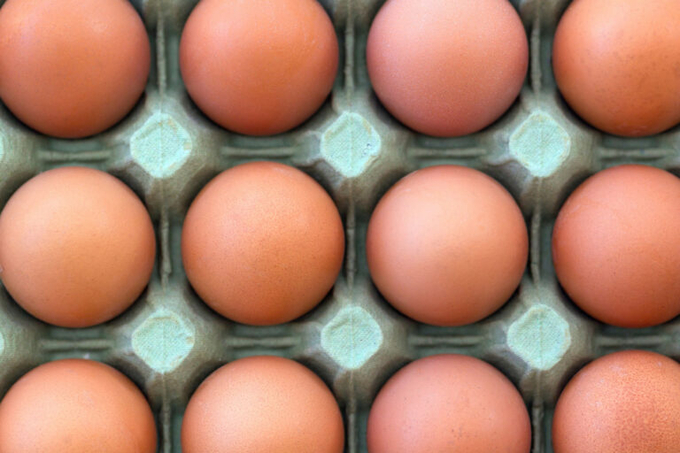November 28, 2025 | 04:17 GMT +7
November 28, 2025 | 04:17 GMT +7
Hotline: 0913.378.918
November 28, 2025 | 04:17 GMT +7
Hotline: 0913.378.918

The changes to free-range egg marketing laws follow detailed consultations and will enable eggs to be labelled as free-range instead of barn when laying poultry throughout the duration of mandatory avian influenza housing measures. Photo: Canva.
Defra has committed to removing the 16-week grace period for free-range status, allowing eggs to be labelled as free-range during mandatory avian influenza housing measures in England and Scotland. And, it has committed to ending unfair practices in the egg supply chain following a consultation on contractual relationships in the UK egg industry. Both issues featured intensive lobbying by farm unions.
Farming minister Mark Spencer said: “Supporting our farmers and food producers is at the heart of our plans and we are committed to working with them. We are pressing on with our plan by investing in food security and resilient farming businesses, providing business advice and cutting unnecessary red tape. It is an exciting time and we are investing in innovation, ensuring the sector has the labour it needs, further embracing fairness in the supply chain and making sure the sector is attracting the best and brightest.”
The changes to free-range egg marketing laws follow detailed consultations and will enable eggs to be labelled as free-range instead of barn when laying poultry throughout the duration of mandatory avian influenza housing measures. The regulatory changes had been one of the NFU’s 4 key asks for avian influenza policy, alongside asks on avian influenza compensation and long-term strategy including access to insurance and vaccination.
The NFU first called for the change in October 2022 and poultry board chair James Mottershead welcomed the news, but said it was important for the Welsh government, who were not involved in the consultation, to follow suit. “The removal of the 16-week derogation period will be welcomed by producers in England and Scotland who had previously faced significant practical challenges and costs. The NFU ask has always been for amendments to the egg marketing regulations to apply across Great Britain and we were disappointed at the absence of Welsh government involvement.”
Delivering on its 2023 consultation, ‘Contractual relationships in the UK egg industry’, which the NFU called for in 2022, the government also announced that it will deliver new regulations to improve transparency, clarity of contractual terms and conditions and data from the supply chain that will ensure written agreements between producers and buyers.
Mottershead added: “I’m pleased that Defra’s review of fairness in the egg supply chain is moving forward, with draft regulations for egg contracts set to be developed and a clear intention to work with the NFU and the wider egg sector on data availability and transparency – both of which we have called for. We look forward to seeing similar progression in the broiler supply chain review to ensure a fair share of risk and reward for poultry meat growers.”
The government also announced that Richard Thompson had been appointed as the agricultural supply chain adjudicator, who will oversee the enforcement of its Fari Dealing regulations.
(PW)

(VAN) A new study reveals how the simultaneous effects of ocean acidification, salinity and loss of oxygen are making the world more fragile.

(VAN) Hopes are growing that the creation of the first 3D turkey gut model could be a turning point in the battle against the virulent blackhead disease.

(VAN) Tyson, America’s biggest meat supplier, plans to shutter one of its largest beef processing plants as the industry continues to struggle with low cattle supplies and political pressure from Washington.

(VAN) New FAO study shows how digital solutions are empowering farmers and fishers to prevent losses and build resilient agrifood systems.

(VAN) Brazil's COP30 presidency pushed through a compromise climate deal on Saturday that would boost finance for poor nations coping with global warming but that omitted any mention of the fossil fuels driving it.

(VAN) Poultry farmers in the UK have been warned that they could face one of the worst winters yet for bird flu.

(VAN) Prices of main-crop paddy have risen sharply, with jasmine rice hitting 16,100 baht per tonne — the highest level in years.